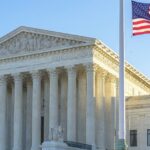




The University of California just slammed the brakes on student-led boycotts of Israel, bending to the Trump administration’s iron-fisted pressure.
Breitbart reported that on Wednesday, the UC system outlawed such actions by student governments and other campus entities, a move that’s got progressive activists clutching their pearls. It’s a bold step, but one that’s got the stench of federal funding fears all over it.
The UC system’s decision, spurred by threats to yank federal funds, bans boycotts of Israel across its campuses. This comes after two years of student governments at several UC schools pushing anti-Israel measures, fueled by rising antisemitism and campus “encampments” following Hamas’s October 7, 2023, attack on Israel.
The Trump team’s antisemitism task force, led by civil rights attorney Leo Terrell, isn’t playing games, and the UC knows it.
Flashback to early 2025: Terrell’s task force announced probes into ten universities, including two UC campuses. The heat was on, with the Trump administration making it crystal clear that federal research grants—lifeblood for universities—were on the chopping block for non-compliance. Harvard’s already in the crosshairs, and UC didn’t want to be next.
Last week, Harmeet Dhillon, head of the DOJ’s civil rights division, dropped a bombshell: her office was investigating the entire UC system. That’s not a warning shot—it’s a cannon blast. The UC’s ban is a desperate bid to keep the feds’ checkbook open.
UC President Michael Drake, in a letter to chancellors, didn’t mince words: boycotts tied to a country’s affiliations are a no-go. “Boycotts of companies based on their association with a particular country” violate UC policy, he wrote, citing rules on competitive bidding for contracts. Sounds like a lawyer’s way of saying, “Don’t poke the bear.”
Drake’s letter also leaned on “sound business practices” for student governments, which must toe the line on UC’s legal requirements.
But here’s the kicker: there’s no specific anti-boycott rule in UC’s playbook. Drake’s just threading the needle with existing policies to dodge a federal smackdown.
Campus student governments are now under a microscope, forced to ditch any anti-Israel boycott plans. These groups, representing entire campuses, can’t just shrug and claim free speech—not when federal dollars are at stake. It’s a bitter pill for student activists who thought they could flex their progressive muscles.
Interestingly, student clubs get a pass. Their smaller budgets and lack of campus-wide authority give them more wiggle room to push political stances. So, while the big dogs are muzzled, the smaller pups can still bark—for now.
Professional school governments, like those at UC’s law schools, aren’t so lucky. Recognized as “authorized student governments,” they’re caught in Drake’s net, facing the same boycott ban as undergrad bodies. That’s bound to spark some heated debates in the lecture halls.
Here’s a fun fact: California state law already bans boycotts of Israel. The UC’s move just brings their campuses in line with what Sacramento’s been saying for years. It’s less a policy shift and more a wake-up call for campuses that thought they could skirt the rules.
The Trump administration’s directive is brutal in its clarity: no boycotts, or kiss your medical and science research grants goodbye. It’s a power play that’s got universities scrambling to comply. The feds aren’t bluffing, and UC’s not rolling the dice.
Drake’s letter, while firm, feels like a calculated dodge. By leaning on vague “business practices” and existing policies, he’s trying to keep the peace without admitting the feds twisted his arm. Nice try, but we all see the strings.
The UC’s ban is a victory for those fighting campus antisemitism, but it’s a gut punch to free expression. Student governments aren’t exactly the villains here—they’re caught between a rock (federal funding) and a hard place (activist ideals). Still, when Hamas’s attack lit this fuse, the fallout was bound to be messy.
Critics will cry censorship, but let’s be real: universities can’t function without federal cash. The Trump administration is playing hardball, and UC’s just trying to stay in the game. It’s not about silencing students; it’s about survival in a politically charged world.



